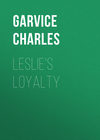Czytaj książkę: «Wild Margaret», strona 23
Austin Ambrose slipped on a dressing gown over the traveling suit, for which he had exchanged his other clothes, and received the general with calm serenity and dignity.
"You expected me, doubtless, and I will not detain you with apologies for the lateness of the hour," said the general, a stiff and soldier-like old man, to whom duels were very ordinary matters indeed. "I may add that my principal, Prince Rivani, will not accept an apology."
Austin Ambrose bowed.
"The Earl of Ferrers has no intention of offering one," he said, quietly.
The general inclined his head.
"As the person challenged, the earl has the choice of weapons," he said.
"Though, like most Englishmen, I am unfamiliar with the etiquette of the duello, I am aware of that. Lord Ferrers chooses swords."
The general looked rather surprised.
"Indeed! In honor, I am compelled to remind you, sir, that his highness is skilled with the rapier; if pistols would be considered more fair – "
"Thanks, general, but the earl has made his choice."
"Then nothing remains to settle but the hour and place," said the general, suavely.
"Will half-past five be too early?" asked Austin Ambrose.
"No hour will be too early for us, sir," said the general, blandly, "and I would recommend the field behind the hospital. It is quiet and secluded at that hour – "
Austin Ambrose assented, and the general looked at his watch.
"My mission is finished, sir," he said. "Pray convey my devoted respects to the earl."
Austin Ambrose bowed him out, and then returned to his room and completed his preparations. He sat down and wrote a short note.
"The meeting is for half-past five in the field behind the hospital. Do not wait for me. I have gone into the town and will join you to the minute."
He rang the bell and gave the note to Blair's valet, then locking the door, flung himself on the bed and closed his eyes, trying to force himself to sleep, but the effort failed for a time.
His acute brain was still at work picturing the incidents as he imagined them. At half-past five he and Violet would be speeding over the frontier. Blair would go to meet Prince Rivani; they would wait a quarter of an hour, half, perhaps; and then, the prince growing impatient, the general would offer to act as second for Blair; the two men would fight, and there would be no doubt as to which would fall. With pistols, Blair, who was a good shot, would stand something of a chance; but with swords, Rivani, whose skill was proverbial, must win. With his eyes closed he could see Blair lying stretched out upon the ground, with a thin streak of crimson creeping snake-like across the breast of his shirt, and at the vision a fiendish smile of satisfaction curved his lips.
Then he must have slept, for presently the sound of a church bell smote upon his ear, and with a start he sprung from the bed, and stealthily drew the curtains a little apart.
Yes, the dawn was breaking, the hour of his triumph was approaching.
Wrapping himself in his cloak, and with a fur over his arm for Violet, he caught up his valise, and with cat-like step made his way to the boudoir.
The door was ajar, as he had left it a few hours ago, but he paused and softly whispered her name.
There was no answer, and he crept in.
He had expected to find her there ready dressed, and waiting for him, but the room was empty. He went to the door of the bedroom and, knocking gently, cautiously called to her.
Still there was no answer, and after a moment's hesitation, he tried the door. It was unlocked, and he opened it and entered. The room was dimly lighted by a small shaded lamp, and for the moment he could distinguish nothing clearly, but the next he saw a figure lying on the bed. It was she. She was lying as if she had fallen backward in a fit of exhaustion, her pale face turned upward, one arm hanging by her side, the other thrown across the bed.
"Asleep? My poor darling!" he murmured. "But I must wake her! There is no time to be lost!"
Still she did not move, and he took her hand.
Something – its icy coldness, perhaps, or its irresponsive lifelessness – sent an awful pang of fear through him that was like the stab of a knife.
Still holding her hand, he caught up the lamp and held it above her head, his eyes scanning her face.
The next instant the lamp dropped from his grasp, and with a stifled cry, he reeled like a drunken man, and fell at her feet!
CHAPTER XXXI
Blair wrote his letters – there were not many, for Austin Ambrose had so entirely undertaken the management of the vast estates that Blair knew very little about any business pertaining to them.
He commenced a letter to Violet herself, but after several attempts tore it up. He would see her before he started for the meeting, and say good-bye as cautiously as he could.
Then he went out, and, leaving the city behind, wandered into the country beyond.
Still thinking of Margaret and the picture which in so mysterious and strange a manner photographed her and her death, he returned to the palace, and was surprised to find that it was past four.
He went straight to his rooms, and there, on the dressing-table, found Austin Ambrose's note.
Blair destroyed the note, then had a bath, and dressed himself with more than his usual care, doing it with his own hands, and without summoning the valet.
Then he sighed. He could not go on this errand of life or death without saying "good-bye" to his wife. And yet he shrank from it as he now shrank from nothing else connected with the affair. But it had to be done, and he went into her apartments and knocked at the bedroom door which Austin Ambrose had closed after him. There came no answer, and Blair, after waiting for a minute or two, turned away.
He went to the writing table, and taking out a sheet of the scented paper stamped with its gold coronet, wrote a line.
"Good-bye, Violet! Heaven send you every happiness.
Blair."
This he put in an envelope and laid it on the slope where she would see it when she entered the room; which she would do about ten o'clock. If he came out of this affair alive he should return long before that hour and could destroy the note.
Then he put on his cloak, and as quietly as possible left the house. The morning air struck coldly, and with a little shudder he turned up the collar of his coat and lit a cigar.
As the clocks chimed half-past five he reached the ground behind the hospital. A carriage and pair stood under the shelter of some trees, and near it was a group of three men. Blair distinguished the prince by his height; the second man was the general, and the third Blair judged to be the doctor; but Austin Ambrose was not there.
"My friend Mr. Ambrose has not arrived, I see," said Blair cheerfully. "I'm very sorry; but I have no doubt he will be here directly. He left word that he would be here before me."
"He will arrive in a minute or two, no doubt," said the general.
Blair went and leaned against a tree and smoked his cigar placidly. The prince stood at a little distance with folded arms, looking like a statue – a statue of implacability – the other two paced up and down.
A quarter of an hour passed, and the prince beckoned to the general.
"What is the meaning of this delay?" he demanded haughtily.
"His lordship's second has not arrived, your highness."
The prince's face darkened.
"It is a trick – a subterfuge!" he said, with suppressed rage. "When he comes, he will be accompanied by the police, no doubt."
The words were spoken with such an icy distinctness that they reached Blair.
His face flushed, and he flung his cigar away and approached the others.
"Some accident has detained my friend, general," he said. "It is getting late, and if we wait any longer we may be disturbed. Will one of you gentlemen do me the favor of acting for me?"
The two men looked blank; such an arrangement was utterly opposite to all etiquette.
Blair smiled cheerfully.
"Pray don't mind saying no. I am quite willing to dispense with a second."
This suggestion certainly could not be entertained, and after a hurried conference the doctor offered his services; the general and he selected a level piece of ground, and the doctor brought a couple of swords.
"You have brought no weapons, my lord," he said. "The prince begs you will make choice."
Blair chose one at haphazard, then took off his cloak, and coat and waistcoat, and turned up his wristbands.
The doctor eyed him approvingly.
"If the result depended upon strength, my lord," he said, "I should have little fear for you, but – "
"Strength is little to do with it, I know," said Blair smiling; "never mind, sir, I will try not to discredit you."
"You are sure there can be no apology?" said the doctor earnestly.
Blair shook his head.
"I fear not. I think if I were to apologize, the prince would not accept it. He has set his heart upon a fight, and" – he smiled again – "I am not at all inclined to balk him."
The doctor shrugged his shoulders; there was a short and hurried conference between the two seconds, and then they placed their men.
The prince stepped up to his position slowly, and took his stand with that calm, resolute expression on his face which indicated a settled purpose. The gray of coming morning fell upon the open space, the white shirts of the duelists shining out conspicuously in the half light. The general stood at a little distance between them, his handkerchief in his hand, and both men fixed their eyes upon it. Then it dropped and they approached each other slowly and steadily, and looked into each other's eyes.
And in the prince's fixed gaze Blair read his intended death-warrant. He returned the look calmly, almost cheerfully, and the next instant the shining blades crossed with a sharp, hissing sound.
For a few moments each kept his guard, each man trying his adversary's strength.
It had occurred to Blair that he might succeed in wresting the sword from the prince's hand, and in doing it sprain his wrist, and so render him incapable of resuming the duel; but he was speedily convinced of the futility of such an attempt. Though so much slighter than Blair, the prince's wrist was like steel, and let Blair bear ever so heavily, his giant's force was met by its equivalent in steel. Of a certainty there was no chance of disarming the prince.
"His lordship is a better swordsman than I expected," murmured the general. "I always thought that Englishmen did not know how to fence!"
"This man is one of a thousand," said the doctor. "If the prince should only lose his temper he may stand a chance."
The general shook his head.
"He never loses either his temper or his head when he means business, and he means it this morning; look at his face," he added, significantly.
The doctor nodded.
"What can the earl have done to offend him so deeply?" he muttered. "Some woman, I suppose?"
The general nodded succinctly.
"Per Bacco! they are splendidly matched!" he exclaimed, in a low tone of admiration.
At present, indeed, it seemed as if the chances were equal, for, though the prince had made several passes that ought to have carried his sword through Blair's body, Blair had parried them skillfully and gracefully, and still stood untouched.
The prince's face darkened and he paused, for he thought he read Blair's intention. He would wait until the prince had scratched him or inflicted a slight flesh wound, and then declare himself satisfied, the seconds would interfere, and he, the prince, would be balked.
With compressed lips, he commenced the attack again, and, seizing a favorable opportunity, permitted his opponent's sword to cut his arm.
Blair lowered his weapon instantly, and the seconds sprung forward.
"A touch, your highness," said the doctor, in a tone of relief. "My lord, you are satisfied, I presume?"
Blair inclined his head, and wiped the tip of his sword, but the prince smiled grimly.
"Pardon me," he said, slowly, without removing his eyes from Blair's face. "It is a mere scratch, and will not serve as an excuse, even for Lord Ferrers!"
There was so deadly an insult in the tone as well as the words, that Blair's face flamed, and his fingers closed over his hilt.
"When his highness is rested, I am ready to resume," he said, quietly.
The seconds drew back reluctantly.
"Now he will kill him," muttered the general. "Mark my words! At the next thrust Rivani will run him through."
Cautiously, and yet with deadly intentions, the prince resumed the attack. The shining blades gleamed in the pale morning light, and hissed like snakes as they seemed to cling together; Blair put all the science he knew into it, but he felt that the moment would come when the sharp steel, that seemed like something human – or rather diabolical – in its persistence, would slip past his guard and finish the chapter for him; and presently he felt as if a hot iron had pierced his left shoulder; it was followed by the sensation of something warm trickling down his side, and he knew that he was wounded.
The two seconds sprung forward, but it was Blair who waved them back.
"Nothing, nothing!" he said. "Do not interfere, please!"
It would have been dangerous to have persisted in any attempt to stop the men, for the swords were flashing and writhing furiously; the prince was losing his calm; if it went altogether, it would leave him at Blair's mercy.
"By Heaven, it is my man who will be killed!" said the general, with an oath. "What possesses him? Look! he will be in the earl's power directly. Ah! – "
The exclamation was wrung from him by a pass of Blair's that the prince parried so narrowly that Blair's blade cut his sleeve from elbow to wrist.
The faces of the two men were white as death, their teeth set, their eyes gleaming with that fire which springs from hearts burning for a fellow creature's life.
Another moment would settle it, one way or the other, and Blair, whose strength was beginning to tell, was wearing down the prince's guard; the seconds were, all unconsciously, drawing nearer and nearer in readiness for the fatal moment, when a woman's shriek clave the air, and two figures seemed to spring from the ground, and fling themselves upon the prince.
CHAPTER XXXII
Blair sprung forward and picked up the prince's sword, and was offering it to him when one of the women released her grasp of the prince, and turning to Blair with outstretched arms, uttered his name.
He started and shuddered as if he had been shot, then, with his eyes fixed on the pale, lovely face before him, began to tremble. The fact was, the poor fellow thought that he was dead, and that this was his Margaret coming to meet him in the other land!
"Blair!" she breathed, trembling like himself, and drawing a little nearer; "Blair, do you not know me?"
Then he uttered a cry – a cry of such agony, of doubt, and fear, and longing, that it went to the hearts of all who heard it. It touched two of them with pity, but the third – the prince's – it turned to fire.
"Stand aside!" he cried, passionately, and he thrust Lottie from his arm. "Stand aside! Your victim shall not save you, you heartless scoundrel! Here, in her presence, you shall pay the penalty!" and he sprung forward with his blade pointed.
The men rushed toward him, but Margaret was before them. With a cry she flung herself upon his breast, and seizing his arms, held them up with a strength almost superhuman.
The prince looked down at her face with wild anguish.
"You, you!" he uttered, reproachfully. "You step between me and this villain!"
"I see no villain, prince!" she said, panting, her eyes fixed on his face. "He who stands there is – my husband!" Then she slid from him and sank with an indescribable cry of love and joy upon Blair's breast.
The prince leant on his sword, and he stood looking at them with a wild amazement that seemed to hold the general and the doctor as if in a trance.
The general was the first to recover himself. With his eyes still fixed on Blair and Margaret, who stood gazing into each other's eyes speechlessly, he went up to the prince, and gently took the sword from his grasp.
"Come away, your highness," he said, in a whisper, "this is no place for us."
"Her husband! Her husband!" breathed the prince, like one in a dream. "Impossible!"
"It looks only too possible," said the general gravely. "Doubtless Lord Ferrers will offer a full explanation later on, but this is no time for it."
"That it isn't, but you can take my word for it that it's true!" said a voice, broken with a sob.
It was Lottie's. The general turned and stared at her.
"You are Miss Leslie's – that is, the countess' – friend, madam?" he said, still staring at her in amazement, that overwhelmed his politeness.
"No, her worst enemy, but one," said Lottie, in her old curt manner. "Oh, I can't tell you half of the story, but if you want to know, it was I who separated them," she said defiantly, through her tears. "But," she added pathetically, "it was I who brought them together again!"
"This is strange!" murmured the general. "Come away, Rivani!"
The prince started as if from a trance and strode toward Blair and Margaret.
"One word, my lord!" he said hoarsely. "You know, you have known from the first, the reason for our meeting. Will you tell me, as man to man, that it had no basis? Will you pledge me your word that you have not injured this lady, for alas, I cannot trust her! It is her heart that has spoken – "
"As man to man I pledge my word that I have not knowingly injured this lady," said Blair brokenly. "She is my wife, Prince Rivani!" then his voice failed him, and he drew Margaret closer to him with a passionate pressure.
The prince bowed, his face white as death, his lips quivering.
"That is sufficient," he said. His eyes turned to Margaret. "Madam, will you forgive me? It was for your sake – " he stopped.
With a sob. Margaret put out her hand to him. He took it, bent over it as if to kiss it, then, as if he could not trust his forced composure another moment, he let it fall and strode away.
Two minutes afterward Blair and Margaret and Lottie were left alone.
What pen could describe the joy which fell upon those two hearts, so long parted by worse than death, but now reunited! Mine shall not attempt it. For a time they stood, her head resting upon his breast, his arm holding her tightly, as if he feared that the next moment he might lose her again. For a time they could only speak in broken, passionate murmurs and it was not until Lottie timidly drew near them that Blair led Margaret to a fallen tree and implored her to tell him how it came to pass that she, whom he had mourned as dead, was now again in his arms.
For an hour they sat, while with many breaks and much faltering, she told the strange story, he listening the while in an amazement that almost overwhelmed his joy. He forgot Lottie, forgot that the city had awakened into its daily life, and above all, he forgot that another woman claimed to be his wife; that, at no great distance, Violet Graham was awaiting him.
It came upon him suddenly, so suddenly that he almost sprung to his feet with a cry of terror and agony.
"Oh, Blair, be calm!" said Margaret, clinging to him, for she thought that he had suddenly realized who it was that had wrecked their lives, though she had cautiously and carefully refrained from mentioning Austin Ambrose. "Be calm, dearest. All our trouble is over now. Let him go. What does it matter? Promise me, Blair – Blair, my love, my husband!"
He groaned, then he started.
"Let him go! Him? Who?"
His wildness frightened her, and she would have soothed him and put the question by, but Lottie was within hearing, and it was too much for her.
"Who? Why, Austin Ambrose!" she exclaimed.
"Hush, hush!" said Margaret, warningly, and she held up her hand haughtily, for, much as Lottie had done to restore her to happiness, she could not endure the sight of her or the sound of her voice.
"Hush!" exclaimed Lottie, half indignantly. "What! are you going to let him go on trusting that wolf in sheep's clothing any longer? Why, it's past reason! Give him a loophole, and he'll ruin everything yet. I know him and you don't, no, neither of you, and Blair – I mean Lord Ferrers – least of all. Why, my lord, you two would never have been parted but for Austin Ambrose."
"Austin! Austin!" echoed Blair.
Then Lottie poured out the story of her villainy and her weakness. Out it came, despite Margaret's commands and entreaties, and, like a lava torrent, it seared Blair's heart.
White and speechless he listened, until, almost breathless, Lottie cried in conclusion:
"And he is down at the palace still, and he'll ruin everything yet if you don't crush him. Oh! I know what he is. He is there with her – "
"Her! Who?" asked Margaret, bewildered.
Lottie stopped short and looked aghast. She had forgotten Violet Graham, the woman who stood before the world as the Countess of Ferrers, as Blair's lawful wife.
Blair held up his hand.
"Not a word more!" he said. "Go, now, Lottie. I – I will send for you later."
Lottie hung her head and left them, and for a few minutes Blair sat silent, feeling as if some fiend had dashed the cup of joy from his lips again.
How was he to tell this lovely angel whose image had never left his heart's throne, this lovable woman who clung to him as if to sever from him would be death to her, how could he tell her that, thinking her dead, he had taken another woman as his wife!
He could not then, at that supreme moment, at any rate.
He rose, still with his arm round her.
"Dearest," he said in a whisper. "You must go home – to your own home for the present – "
Margaret started and looked at him, then her face went white, but she said nothing, not one word.
"For the present," he repeated, almost beside himself. "In an hour or two I will come to you. Tell me where?"
She told him falteringly, yet calmly.
"You can trust me! Surely you can trust me! Ah, if you knew what it costs me to part with you for a single second! But it must be – it must be!" he groaned. "Believe in me, trust me, dearest Margaret, my wife, for a few short hours longer! You will?"
She looked up at him for a second with a deep earnestness, then she laid her head upon his heart and he kissed her.
With a consideration and a delicacy peculiarly Italian, the prince had left his carriage, and Blair led her to it. He stood and watched it as it drove away, with all that he cared for in life, with the treasure so marvelously restored to him, then he turned toward the city.
He seemed to be walking in a dream. What was this task that lay before him? He was to go to Violet Graham and say, "you are no longer my wife – you never have been my wife! Begone!" It was true he owed her no pity, for she had gained her ends by an unscrupulous alliance with the traitor who had marred and ruined so large a portion of his life; but – still – it was from love of him that she had sinned! And now to go to her and tell her that Nemesis had fallen upon her, and that henceforth she must go before the world a thing for scorn to mock at.
With Austin Ambrose, Blair knew how to deal; there would be no hesitation there. Two or three short words, followed by one blow. But Violet – !
Slowly he made his way to the palace. Servants were running to and fro in the vast hall, the sounds of life were filling the air which a short time back was so still and quiet.
He entered the hall and mounted the stair with dragging step. In the corridor his valet stood aside to let him pass, and regarded his pale face with covert curiosity.
"Is – is her ladyship down yet?" asked Blair.
"No, my lord; it is not her ladyship's time for rising yet."
Blair glanced at the clock.
"No, no," he said. Then his face darkened. "Will you go to Mr. Ambrose's room and send him to me?" he said.
"Mr. Ambrose has gone into the city, and has not returned yet, my lord," said the man. "I thought your lordship knew – "
"Wait in the hall until he returns, and ask him to come to me," said Blair.
He passed on and entered Violet's boudoir. His note lay on the table where he had left it, and he tore it in pieces and dropped it on the fire. Then he paced to and fro, stopping to listen now and again.
All was still in Violet's room, and he began to ask himself the question if it was necessary for him to see her. Could he not write and tell her all that he had discovered; could he not break it to her in some way? Why should he not leave the place with Margaret alone, within an hour or two, and see Violet no more?
But his spirit rebelled against the suggestion. It seemed unmanly and unworthy. No, he would go through with his task to the bitter end. First Violet, then the other conspirator, Austin Ambrose. Still he waited. The hands of the clock toiled round the dial, and chimed the hour. With a start he nerved himself and knocked at the door. No response followed, and he knocked again and again, more loudly. Then he opened the door and entered.
The next instant he staggered back with a cry of horror.
Stretched upon the bed was the woman he had made his wife, and lying at her feet was the man who had been at once her dupe and her master. As Blair bent over to raise her, he fell back shuddering, for he saw that she was dead! At the same instant the white hand of the man lying at her feet dropped lifelessly and slid away. Blair, who had been about to strike him, saw a small vial lying at his feet.
Small as it was, it had contained sufficient poison for Austin Ambrose. It was the vial he had carried in his breast for months past, for which he had felt that night when he thought that Blair had discovered his villainy. It was for this that he had plotted and schemed with a heartless ruthlessness that an Iago might have envied! To find the woman he had loved and entrapped snatched by Death from his grasp in the very hour of his triumph, and to finish his career – a Suicide!














